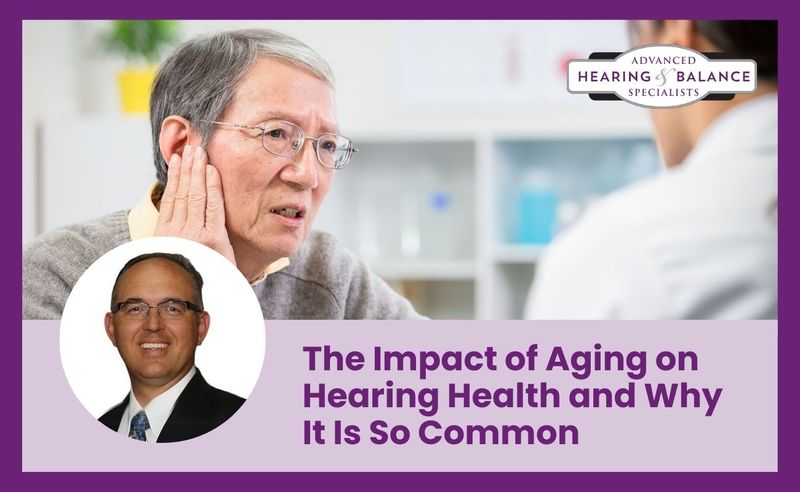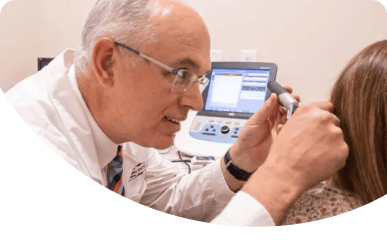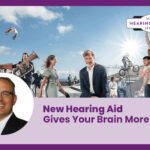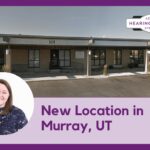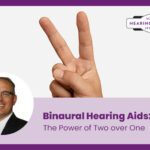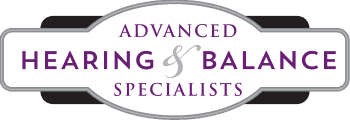As we age, encountering changes in our hearing becomes almost inevitable, with hearing loss in the elderly being a common condition that can significantly impact one’s quality of life. It’s estimated that approximately one in three people in the U.S. between the ages of 65 and 74 experience some degree of hearing loss, making it crucial for seniors to stay vigilant for signs of this natural progression. Addressing hearing concerns early can not only improve your everyday experiences but also safeguard against potential complications, such as depression and decreased social interactions, which are often intertwined with untreated hearing conditions.
Understanding the intricate link between hearing loss and cognitive health is paramount, as recent studies suggest a correlation between untreated hearing loss and increased risks of dementia, alongside exacerbating conditions such as tinnitus and mental health issues like depression. This emphasizes the importance of not only acknowledging hearing loss as a part of aging but also actively seeking management options. Encouragingly, modern hearing aids and interventions offer powerful means to combat the effects of hearing loss, underscoring the need for seniors to consider a hearing test as a proactive step toward maintaining not just auditory health, but overall well-being.
Understanding Age-Related Hearing Loss
Understanding the nuances of age-related hearing loss, or presbycusis, is crucial for recognizing its signs and seeking timely intervention. This condition, affecting millions globally, can manifest in various forms:
- Types of Hearing Loss:
- Sensorineural: The most prevalent form, resulting from changes in the inner ear or nerve pathways to the brain.
- Conductive: Involves the outer or middle ear and can often be medically treated.
- Mixed: A combination of sensorineural and conductive hearing loss.
- Common Signs:
- Difficulty understanding conversations, especially in noisy environments or if the speaker is not directly facing you.
- Perception of speech as “people mumbling” or unclear.
- Difficulty hearing high-pitched sounds, such as children’s voices or soft speech.
- Risk Factors and Prevention:
- Genetic predisposition and long-term exposure to loud noises are significant contributors.
- Preventative measures include avoiding loud sounds, using ear protection, and maintaining a healthy lifestyle to mitigate risks.
Recognizing these signs and understanding the types and causes of hearing loss can empower you to take the necessary steps towards management. Encouragingly, advancements in hearing solutions offer effective ways to improve hearing, underscoring the importance of early diagnosis and intervention.
The Link Between Hearing Loss and Cognitive Decline
As we delve deeper into the intricacies of hearing loss in the elderly and its profound impact on cognitive health, it’s crucial to understand the interconnectedness between untreated hearing conditions and cognitive decline. The following points illuminate this critical relationship:
Cognitive Decline and Dementia: Untreated hearing loss is not just an isolated health concern but serves as a catalyst for cognitive decline and dementia. Studies have shown that individuals with untreated hearing loss experience a faster rate of cognitive decline compared to those with normal hearing. Specifically, mid-life hearing loss doubles the risk of developing dementia, making it a significant, modifiable risk factor.
Social Isolation and Its Effects: The journey from hearing loss to social isolation is a short one, with isolation further precipitating cognitive decline. The sense of loneliness that often accompanies hearing impairment can lead to a cascade of detrimental health effects, including depression and dementia. This underscores the importance of addressing hearing loss to maintain not only auditory health but also mental well-being.
The Positive Impact of Hearing Aids: On a hopeful note, the use of hearing aids and regular auditory check-ups can significantly slow cognitive decline. A 25-year study found that individuals with hearing loss who utilized hearing aids experienced cognitive decline at a rate comparable to those without hearing loss. This highlights the potential of hearing care, including the use of hearing aids, in maintaining brain health and lowering the risk of dementia.
In light of these findings, it becomes evident that the early diagnosis and treatment of hearing loss are not merely about improving auditory health but are integral to preserving cognitive function and quality of life in the elderly.
Hearing Loss and Social Isolation
Hearing loss in the elderly is most commonly associated with significant changes in social behavior, primarily due to the challenges it presents in communication. This often leads to decreased participation in social activities, a key factor in maintaining mental and emotional health. The following points highlight the impact of hearing loss on social isolation:
- Communication Difficulties: As hearing deteriorates, engaging in conversations becomes more challenging. This can result in seniors withdrawing from social interactions to avoid the frustration and embarrassment of asking for repetitions or misunderstanding conversations.
- Increased Loneliness: Research indicates that for individuals under 70, every decibel drop in hearing perception increases the odds of experiencing severe loneliness by 7%. This emotional loneliness is further exacerbated by factors such as living alone, age, and associated conditions like depression and anxiety.
- Gender-Specific Impact: Interestingly, the association between hearing loss, loneliness, and social isolation appears to be stronger in women aged 60 to 69. This demographic shows a threefold increase in the odds of social isolation per 25-dB of hearing loss.
Understanding these dynamics is crucial for addressing the broader implications of hearing loss. Scheduling a consultation with a hearing specialist and considering hearing aids can significantly mitigate these risks, fostering a more connected and fulfilling life.
Modern Hearing Aids & Solutions
To combat the challenges of hearing loss in the elderly and its associated risks such as social isolation and cognitive decline, modern hearing solutions play a pivotal role. Here is a closer look at the options available:
- Hearing Aids
- Types: Available in various styles including Completely in-the-Canal (CIC), In-the-Canal (ITC), In-the-Ear (ITE), Behind-the-Ear (BTE), Receiver in Canal (RIC), and Open Fit.
- Technology: Modern hearing aids are akin to digital microcomputers, capable of automatically adjusting to sounds thousands of times per second. They offer features like noise reduction, directional microphones, rechargeable batteries, and wireless connectivity.
- Benefits: They amplify sounds, improving communication and interaction with family, friends, and coworkers, thereby enhancing quality of life.
- Cochlear Implants: For those with profound deafness or severe hearing loss, cochlear implants can provide a sense of sound. These small electronic devices are surgically implanted in the inner ear.
- Assistive Listening Devices (ALDs): These include telephone amplifiers, smartphone apps, and closed-circuit systems in public venues, designed to enhance the listening experience in specific situations.
These solutions address hearing loss and also they can mitigate the risk of cognitive decline and social isolation. With advancements in technology, hearing aids and devices have become more efficient and user-friendly, offering a beacon of hope for seniors to lead a connected and fulfilling life.
Importance of Early Diagnosis and Intervention
Recognizing and addressing hearing loss early in older adults is paramount for maintaining not just auditory health but overall well-being.
- Steps to Take for Early Detection:some text
- Regular Hearing Assessments: Recommended for individuals over 50 to catch any issues promptly.
- At-Home or Online Screening: Utilize smartphone apps or online tests as a preliminary check.
- Professional Evaluation: Seek a comprehensive hearing test from a qualified audiologist, covered by most insurance plans.
- Management and Prevention:some text
- Treatment Options: Includes hearing aids, assistive devices, and techniques for managing earwax (cerumen).
- Preventive Measures: Limit exposure to loud noises and wear protective ear gear when necessary.
- Interprofessional Care: Effective management involves collaboration with healthcare professionals, ensuring a holistic approach to treatment and care.
Early intervention not only alleviates the immediate challenges associated with hearing loss but also mitigates long-term risks, including cognitive decline, depression, and social isolation.
The Role of Audiologists in Managing Age-Related Hearing Loss
Audiologists are your frontline allies in navigating the complexities of age-related hearing loss, offering a blend of expertise, personalized care, and innovative solutions tailored to your unique needs.
- Comprehensive Evaluation and Diagnosis:
- Expertise in Detection: Audiologists utilize advanced diagnostic tools to accurately assess hearing loss, distinguishing between types and identifying underlying causes.
- Customized Treatment Plans:
- Personalized Solutions: Recommendations are made based on your lifestyle, interests, and specific hearing challenges, ensuring treatments resonate with your daily life.
- Innovative Aids and Techniques: From state-of-the-art hearing aids to non-technological communication strategies, audiologists equip you with the tools to improve hearing and connectivity in all environments.
- Educational and Supportive Role:
- Empowering Through Knowledge: Beyond treatment, audiologists provide vital community education on hearing preservation and public space accommodations.
- A Network of Support: They connect you with local support groups and resources, fostering a community of care and understanding around hearing loss.
By choosing an audiologist who adheres to best practices and prioritizes your needs, you’re taking a positive step towards managing age-related hearing loss effectively.
Visit Advanced Hearing & Balance Specialists for a Hearing Test
Taking the initiative to visit our audiologist for a hearing test is a positive step towards maintaining your auditory health and overall well-being.
- Professional Hearing Evaluation:
- A professional hearing evaluation with an audiologist involves a comprehensive assessment of your hearing ability, including tests to measure your hearing sensitivity and the ability to understand speech. This evaluation aims to provide a detailed understanding of your hearing health and any potential issues that may be impacting your daily life.
- Understanding the Importance:
- Regular hearing assessments are advised for individuals over 50 to catch any issues early. The U.S. Preventive Services Task Force (USPSTF) and recent systematic reviews highlight the need for more research but underscore the potential benefits of early detection and intervention in managing age-related hearing loss.
By recognizing the signs of hearing loss and seeking professional advice, you are taking a significant step towards enhancing your quality of life and staying connected with your loved ones. Contact us today to schedule an appointment with the best audiologists in Utah and South Nevada.

